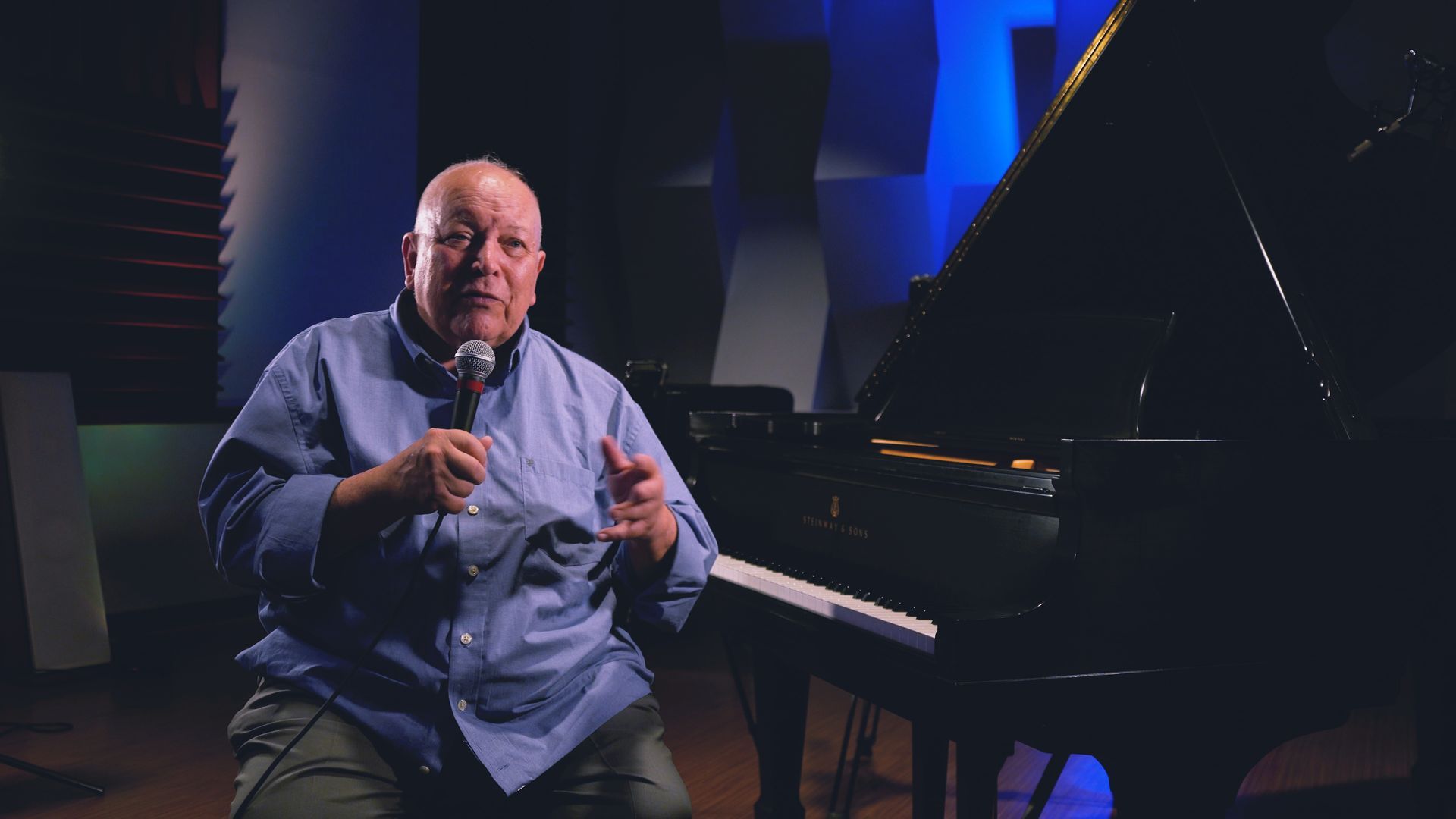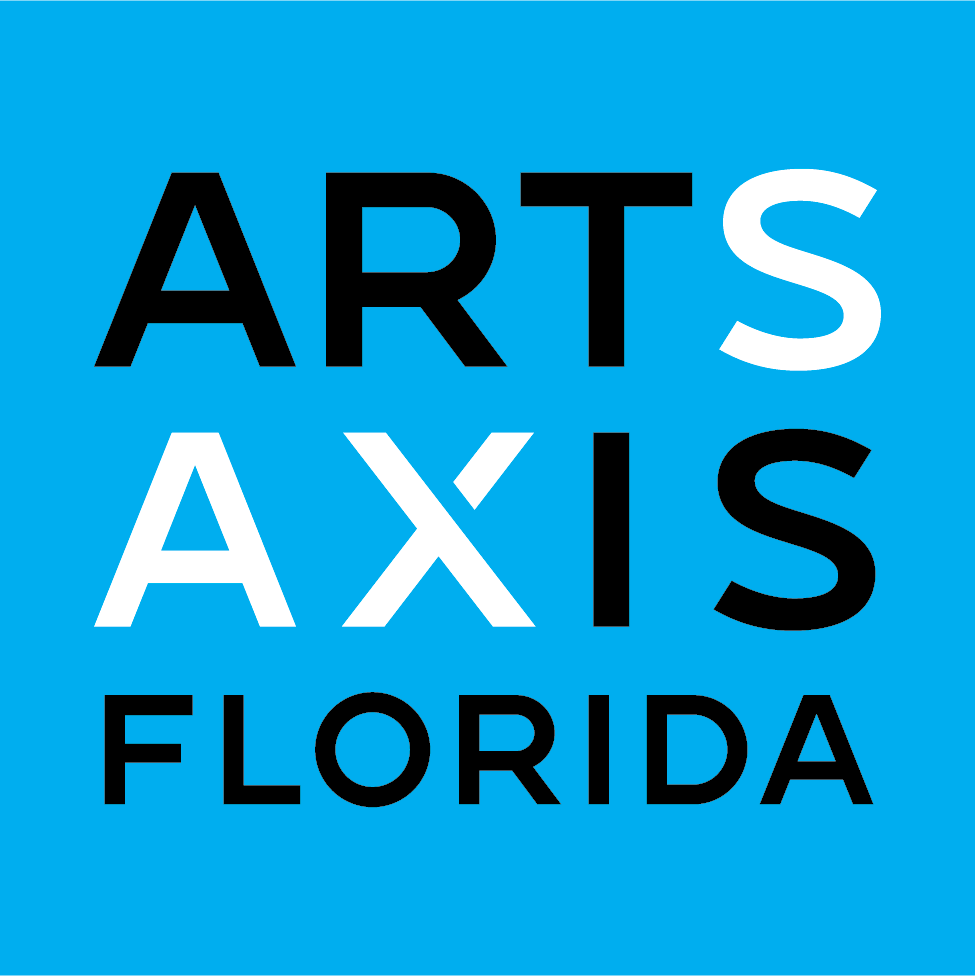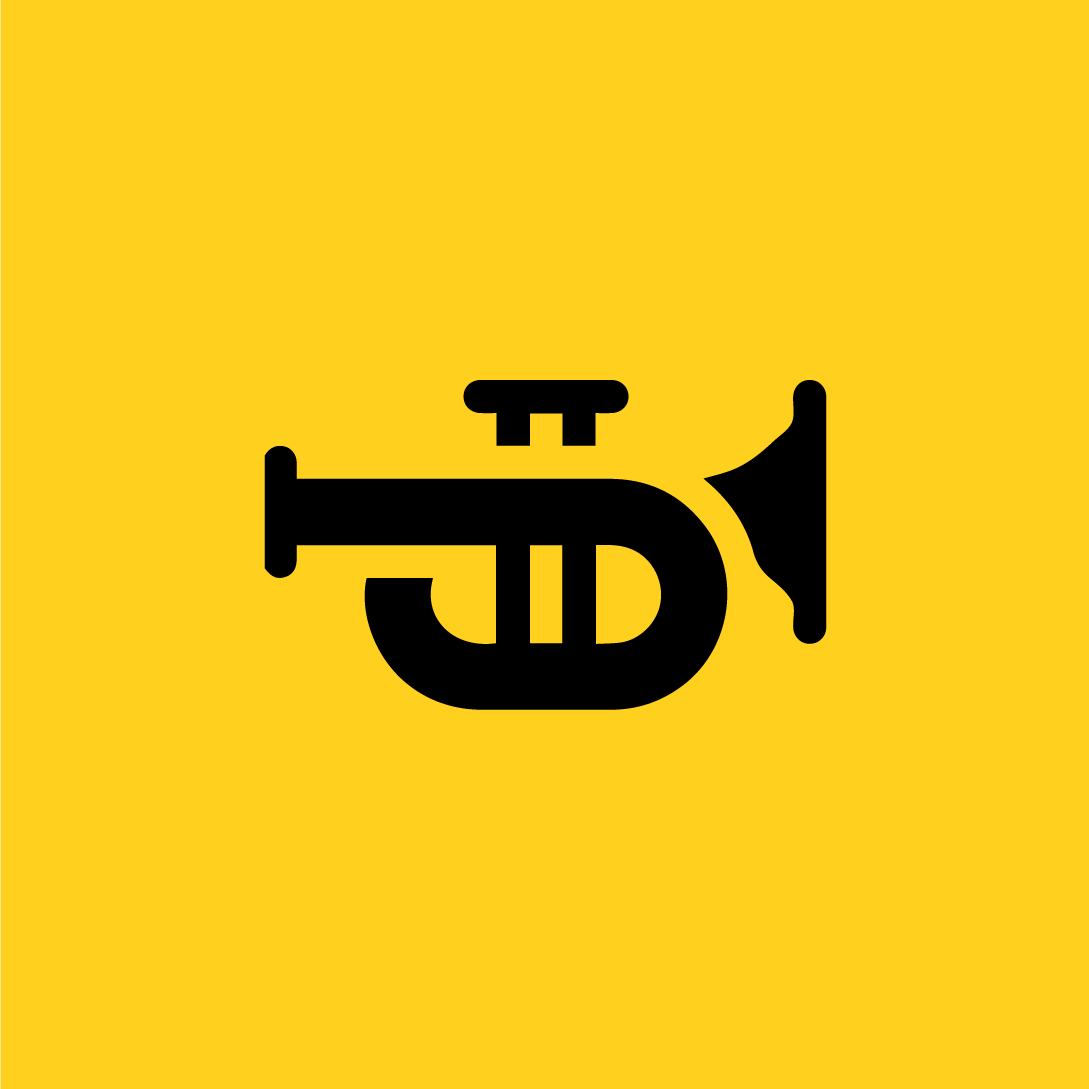Pianist Dan Bremer Performs a Solo Session in the WUSF Studio

Photo of Dan Bremer in the WUSF Studio. Photo by Jazz on Arts Axis Florida
About Dan Bremer: A freelance musician in NYC for 40 years. Plays bassoon, clarinet, sax and piano. Played venues from the Staten Island Ferry to Lincoln Center and everything in between. Taught at Wagner College and Staten Island Community College. As a woodwind player performed with the Staten Island Chamber Music Players, the Staten Island Symphony, 7th Army Band, the Metropolitan Opera Orchestra. As a legit pianist, he worked as an accompanist for soloists, choirs, community theater, musical director for Staten Island Children's Theater. As a jazz pianist, he played clubs, hotels and restaurants, including Birdland, the 21 Club, the Riverside Cafe.
Dan retired and moved to Clearwater in 2016. He was doing a series of programs at local libraries in Pinellas County called The Great American Songbook, performing with vocalist Catherine Costa and which included stories, anecdotes and a bit of history about the composers, lyricists and performers of the music from the American Songbook. The Covid pandemic ended that series.
Dan recently won the Best Original Music Composition in the Veteran's National Arts Competition for his solo piece "Solace." He will perform the piece at the Veterans Art Festival in Denver of May 2024.

What message(s) do you hope to resonate with your audience when they hear your music?
I have no messages for the audience. I have music to offer, with all its magic, excitement, and adventure, all its mystery and ability to transcend the ordinary. It can provide an artistic and spiritual experience if one can allow themselves to be moved by what they hear. Listening is not a passive activity. It requires focus, concentration, and the willingness to go wherever the music takes you. The listener is a participant in the experience, just as much as the performer. The experience, although highly individual, is created by both. When I play a piece on the piano, whether classical or jazz, I offer to take the listener with me on a journey of sound and wonder, of surprise and imagination, a journey that deeply touches the soul. I get bored with music that is interesting or clever. I like music that moves me, that reaches inside my heart and soul, that evokes emotions and passions in me. Music is a ticket to another reality.
How has playing music helped you in life?
Playing music is my life. I started playing the piano when I was around 8 years old, and I’ve been playing ever since. That was 70 years ago. I grew up in a home where expressing your feelings was discouraged. Even to have emotions was not a good idea. But when it came to playing music, playing with feeling was a plus. Beethoven wrote, “To play a wrong note is insignificant, to play without passion is inexcusable.” When I was young, music provided the circumstance where I was allowed to let my emotions surface. Ordinarily, this was not approved of, but it was applauded when it came to playing music.
Music also gave me a livelihood. I was given the talent, but to make a living at it I had to work hard, study, practice, and develop that talent. There was nothing else I had any interest in and nothing else I was very good at. Competition was fierce and there were long periods where there was not a lot of work. Regardless, I never seriously thought of doing anything else. I was following my childhood dream of being a full-time professional musician. Eventually I became established and worked steadily without much down time. Once I had a very talented student who was planning on performing music as her career. Her father was not happy with her plans and asked me, “Of all the people who play music, how many actually make a viable career out of it?” I said only those who have to. I am one of those.
Who are your musical inspirations?
I can’t say that there are any performers who made me want to play more than I already did. It was the music itself that inspired me. I played only piano until I went to high school. When I heard the high school band play, I wanted to play with them. So, I took a class in clarinet. After 6 months I joined the band and loved playing with them. After another couple of months, I joined the All-City Concert Band. That was even better. I eventually learned to play the bassoon because I wanted to play in a symphonic orchestra. I wanted to play all that wonderful classical music I listened to on records. It was always the music that inspired me, not any individuals. Although there was one individual who did impress me. In the early 60s Leonard Bernstein created a series of TV programs called “The Young People’s Concerts.” He talked about music and then had the NY Philharmonic play the music. Those programs were outstanding and left an impression on me.
How do you prepare mentally and physically for a live performance?
If I can, I like to take a nap during the afternoon before a performance. I follow that with a shower and shave and I cut my fingernails. I prepare my clothes and shoes and I collect and prepare any equipment I will need on the gig. I make sure I have directions, gas in the car, and double check the time of the downbeat. To mentally prepare I like to play Bach. It grounds me, it relaxes me, I connect with his music. I play for about half an hour.
How do you choose which songs to play?
Of course, I have to like the song. Better yet, the song should touch me in a deep way. Most of the tunes I play are just good tunes and fun to play. Beyond that, a tune has to work as a solo piano piece. There are a lot of good tunes, but they don’t all work as a piano solo. Also, the music must be able to stand on its own, without the lyrics. Some songs need the lyrics to be complete. I choose songs that are so good musically that they are good even without the lyric.
My repertoire comes from the Great American Song Book, a body of work mostly from the 30s, and 40s. Their virtues are many. The melodies are simple, well built, and beautiful. They are written in simple song forms, which make them easy to arrange and stylize in your own fashion. The harmonies are lush and modern and are easy to modify and reshape into your own harmonic definitions. They lend themselves easily to improvisations.
What’s your top tip for musicians just starting to perform in live venues?
You mean musicians just starting to play gigs? That’s a tough question.
- Make sure you are wearing appropriate clothes.
- Be well groomed, look good.
- Get there early.
- Make sure you haven’t forgotten anything.
- Make sure you have the right address, and directions on how to get there.
- Make sure you have the right date and time for the gig.
- Make sure you know about the parking.
- Play like you always play. Don’t try to impress.
- Stay focused on the music and don’t get distracted.
- Enjoy yourself!
Above: images of wood art created by Dan Bremer
What’s your favorite piano to play on?
On Staten Island, there is a cultural center where there are several venues in which to perform. It is called the Snug Harbor Cultural Center. One of the venues is an old chapel. In the chapel there is a Steinway B, seven foot grand, that was built in Germany. It has the most heavenly sound you can imagine. The action is well maintained and regulated. The sound is even throughout the entire range. And it is the perfect size for the room. I’ve played many concerts on that piano and it is always a bit of a thrill for me to perform on such a fine instrument.
There is also a Mason and Hamlin grand at the Jewish Community Center on Staten Island where I performed frequently that I really enjoyed playing.
There is one other place that always has a Steinway 9 foot concert grand on stage. It is the Steinway dealership in Clearwater, the Music Gallery. It is not always the same piano every time I play there, but it is always a Steinway D, and it is always a pleasure to play. The Steinway D is Steinway’s finest concert piano.
Camera/Editing - Warren Buchholz
Audio - Jackson Harpe
Jazz on Arts Axis Florida is powered by WUSF, Community Foundation Tampa Bay, and by viewers like you. Thank you!








